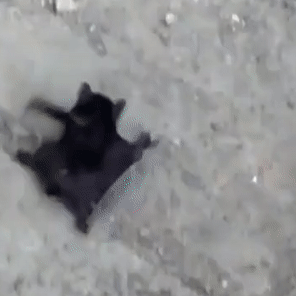LotR, HP, Sherlock, GoT, Merlin, Downton Abbey, MCU, The Blacklist, Shoethe, literature, writing, fanfiction, 18. century, education, church
Last active 2 hours ago
Don't wanna be here? Send us removal request.
Text
the real honest answer to "why didnt they just [insert solution that would end the story in five minutes]" is because that would end the story in five minutes and if we lived in a world where every story ended in five minutes what would be the point
32K notes
·
View notes
Text
"gay or european" also goes for middle-aged women btw. that lady with short hair no makeup and sneakers isn't a lesbian she's just german
16K notes
·
View notes
Photo


[x] [x]
Als Goethe einmal auf einer Reise nach Leipzig zwei beinahe exakt gleich lautende Briefe an seine Lebensgefährtin Christiane und an Schiller geschickt hat…
Im vollkommen identischen ersten Teil übersandte er den beiden ein ‘Lebenszeichen’, wie er selbst schrieb, berichtete was er so trieb, wen er getroffen hatte, wie das Wetter war etc. Die Briefe unterscheiden sich ausschließlich durch ihre leicht personalisierten Enden: An Christiane schrieb er noch, ihr mehr zu erzählen wenn er wieder da sei und trug Grüße an den gemeinsamen Sohn auf – an Schiller schrieb er, wie sehr er sich freue bald zurück zu ihm in die “Jenaische Einsamkeit” zu kehren, dass ihm die Zerstreuung in Leipzig aber trotzdem gut tue.
Ich hoffe inständig, dass das keiner von beiden jemals erfahren hat.
143 notes
·
View notes
Text
Ich bin ein Vegetarier. Ich vegetier so vor mich hin.
351 notes
·
View notes
Text
Wait what?! Judith Butler is still alive??!! I learned about her in university but how did I miss that?! And she kinda looks like my favorite human being? (Leonard Hofstaedter voice) What is happening?!

88K notes
·
View notes
Photo


[x] [x]
Als Goethe einmal auf einer Reise nach Leipzig zwei beinahe exakt gleich lautende Briefe an seine Lebensgefährtin Christiane und an Schiller geschickt hat…
Im vollkommen identischen ersten Teil übersandte er den beiden ein ‘Lebenszeichen’, wie er selbst schrieb, berichtete was er so trieb, wen er getroffen hatte, wie das Wetter war etc. Die Briefe unterscheiden sich ausschließlich durch ihre leicht personalisierten Enden: An Christiane schrieb er noch, ihr mehr zu erzählen wenn er wieder da sei und trug Grüße an den gemeinsamen Sohn auf – an Schiller schrieb er, wie sehr er sich freue bald zurück zu ihm in die “Jenaische Einsamkeit” zu kehren, dass ihm die Zerstreuung in Leipzig aber trotzdem gut tue.
Ich hoffe inständig, dass das keiner von beiden jemals erfahren hat.
143 notes
·
View notes
Text
there's this word in Serbian 'vukojebina' which literally means 'the place where wolves go to fuck' but they use it to mean 'in the middle of nowhere'. it sure does the job well, but the visual stayed with me longer than I would have liked it to.
22K notes
·
View notes
Text
“Wenige Wochen nachher lagen beide krank darnieder und konnten sich weder sehen noch schreiben. Schiller war der erste, der sich erholte, und kaum konnte er wieder ausgehen, so besuchte er seinen lieben Goethe, nachdem er sich durch mich hatte anmelden lassen. Ich war bei diesem Wiedersehen zugegen, und es rührt mich noch jedesmal, wenn ich daran denke. Sie fielen sich um den Hals und küssten sich in einem langen, herzlichen Kusse, ehe einer von ihnen ein Wort hervorbrachte.”
— Heinrich Voß an Christian Niemeyer, über das Wiedersehen am 01.03.1805 in einem Brief vom 12.08.1806
777 notes
·
View notes
Text
“Ihr Brief meine Liebe, traf mich zur guten sonnigen Stunde, deren wir uns nicht oft zu rühmen haben und machte mir sie noch erfreulicher, hätte nur nicht zugleich die Nachricht von Schillers Übel wieder eine Wolke davor gezogen. Da wir geistiger Weise so froh zusammen vorschreiten, warum können wir es nicht auch dem Körper nach? Selbst diesmal wenn wir zusammen hier gewesen wären, hätte es uns gewiß doppelte Zufriedenheit gegeben.”
— Goethe an Charlotte Schiller, Karlsbad, 25.02.1795
35 notes
·
View notes
Text
Reblog to let prev know their presence is wanted
542K notes
·
View notes
Text
Passend zum Thema Schwäbisch hier zwei Anekdötchen, die Herr Genast - seinerzeit Regisseur am Weimarer Theater - so freundlich war für die Nachwelt festzuhalten:
Proben zu Tankred, April 1801
Schiller war übrigens bei den Proben voll Nachsicht und Freundlichkeit gegen die Schauspieler, man musste ihn liebgewinnen; und doch gab es einige gelehrte Thebaner unter diesen, die sich klüger dünkten als er, weil ihnen die sogenannten Handgriffe des Bühnenlebens mehr zu Gebote standen, und sonach kamen Widersprüche bald von dieser, bald von jener Seite. Mich brachte die Anmaßung dieser Leute öfters in Harnisch, und ich hätte gern mit Fäusten dreingeschlagen, aber Schiller widerlegte stets mit der größten Freundlichkeit oft ganz widersinnige Ansichten; zuweilen machte sich freilich eine zornige Röte auf seinen Wangen bemerklich. Einmal jedoch riss der Faden seiner Geduld. Wir hatten den Tankred nach Voltaire von Goethe schon einige Male aufgeführt. Bei einer abermaligen Wiederholung desselben hielt Schiller die Probe ab, und Goethe hatte ihn ersucht, ein wachsames Auge auf Haide zu haben, der den Tankred spielte, dass er nicht, wie bei der letzten Darstellung, die höchsten Töne seines Organs anschlagen und sich in der ewigen Malerei mit den Händen und Armen enthalten solle. Der gute Haide hatte sich aber in diesen Fehler, den Goethe schon oft am ihm gerügt, förmlich verbissen; auch die Warnungen Schillers fruchteten zu nichts; er wollte diesem sogar seine Gründe auf das breiteste auseinandersetzten. Das brachte Schiller aus seiner würdevollen Ruhe heraus und er rief voller Zorn: »Ei, was! Mache Sie’s, wie ichs Ihne sage und wies der Goethe habbe will. Und er hat recht - es ischt ä Graus, des ewige Vagiere mit dene Händ und das Hinaufpfeife bei der Rezitation!« Haide stand wie vom Donner gerührt da, denn so war Schiller noch nie aufgetreten.
Proben und Aufführung von Macbeth, Mai 1800
Schillers Bescheidenheit, namentlich bei seinen eigenen Werken, war fast übertrieben. Ein Beispiel möge hier folgen. Unserm Vohs, der, wie ich früher schon bemerkte, ein ausgezeichneter Künstler war, hatte Schiller die Rolle des Macbeth zugeteilt. Bei der ersten Theaterprobe war er seiner Aufgabe noch gar nicht so mächtig, wie man es von ihm erwarten durfte, und selbst die lauteste Hilfe des Souffleurs fruchtete nur wenig. Da aber Vohs wegen seines eminenten Talents bei Goethe und Schiller in hoher Achtung stand und man seine Reizbarkeit kannte, so machten Dichter und Direktor gute Miene zum bösen Spiel, und keine Rüge erfolgte ob der Nachlässigkeit. Dieser störende Übelstand trat aber auch bei der Hauptprobe hervor, und Goethe schwoll die Zornesader, und er rief, da ich zu fungieren hatte, mit seiner mächtigen Stimme: »Herr G'nast!« (Goethe liebte es, meinen Namen zu apostrophieren), »verfügen Sie sich zu mir herab!« Er, Schiller und Meyer saßen im Parterre, und der zweite Akt war eben zu Ende. »Was ist denn das mit diesem Herrn Vohs?«, fuhr er mich an. »Der Mann kann ja kein Wort von seiner Rolle; wie will er denn den Macbeth spielen? Sollen wir uns vor den höchsten Herrschaften und dem Publikum blamieren? Man fistiere das Stück für morgen, und Sie brauchen das Warum weder vor Herrn Vohs noch dem Personal zu verschweigen.« Schiller suchte Goethes Zorn zu beschwichtigen und rühmte die künstlerische Ruhe von Vohs, seine Genialität, die ihn gewiss bei der Darstellung über diese Klippe hinwegführen würde denn die Auffassung des Charakters sei doch vortrefflich. Auch ich stimmte der Ansicht Schillers bei, und Goethe, der schon aufgestanden war, um das Theater zu verlassen, fügte sich endlich, beauftragte mir aber, Vohs im Vertrauen einen Wink zu geben, was ich wohlweislich bleiben ließ, da ich die heftige Gemütsart von Vohs nur zu gut kannte. Die Vorstellung fand den andern Tag statt. – Der Beifall steigerte sich von Akt zu Akt, und namentlich war es Vohs der das Publikum enthusiasmierte. Nach dem zweiten Akt kam Schiller auf die Bühne und fragte in seinem herzigen schwäbischen Dialekt: »Wo ischt denn der Vohs?« Dieser trat ihm mit etwas verlegener Miene und gesenktem Kopf entgegen; Schiller umarmte ihn und sagte: »Nein, Vohs! Ich muss Ihne sage: Meischterhaft! Meischterhaft! Aber nun ziehe Sie sich zum dritte Akt um!« Vohs musste sich anderes erwartet haben. Denn mit inniger Freude dankte er Schiller für seine unbegrenzte Nachsicht. Dann wandte sich Schiller mit den Worten zu mir: »Sehe Sie, Genascht, wir habbe recht gehabt! Er hat zwar ganz andere Vers gesproche, als ich sie geschriebe hab, aber er ischt trefflich!«
142 notes
·
View notes
Text
“wählen.”
— Johann Wolfgang von Goethe, Faust II, Akt IV, V. 10280
3K notes
·
View notes
Text
“Geht”
— Friedrich Schiller, Don Karlos, Akt IV, V. 3919
3K notes
·
View notes


